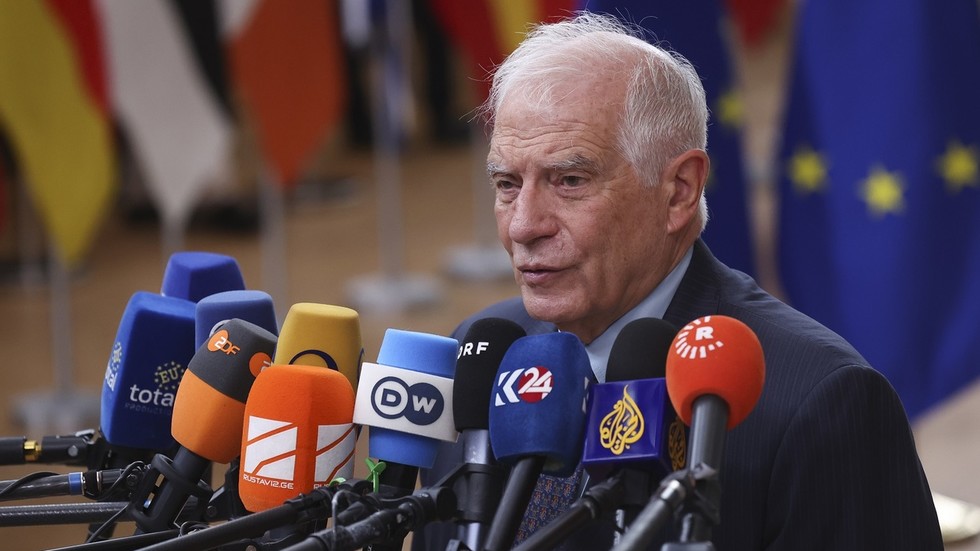Georgia’s aspiration for European Union membership is closely tied to the outcome of its upcoming general election, as emphasized by the EU’s chief diplomat, Josep Borrell. The European Council has expressed concerns over Georgia’s recent policy decisions that threaten to undermine its path toward EU integration. This post-Soviet nation, which formally sought EU membership in March 2022, has enacted several controversial laws, most notably a mandatory registration for non-governmental organizations (NGOs) and media outlets that receive foreign funding. These moves have provoked backlash from Western countries and have created a significant rift in Georgia’s pursuit of closer ties with the EU.
Borrell underscored the importance of the October 26 election, calling it a “moment of truth” for Georgia. He urged the citizens to make a decisive choice regarding their country’s future—whether to lean towards European integration or to drift away from it. The stakes are high, as the outcome of the election could have lasting implications for Georgia’s political and economic landscape, impacting its relationship with not only the EU but also other Western nations. The European Council has called for the election to be conducted in a manner that upholds international standards, ensuring that all observers—both international and domestic—can monitor the electoral process without obstacles.
In anticipation of the election, the Georgian election authority has issued credentials to an unprecedented number of 64 international organizations, facilitating one of the most scrutinized electoral processes in the country’s history. This level of monitoring surpasses even the previous record from 2008, demonstrating the growing concern about the transparency and integrity of the electoral process. The European Council has urged Georgia to implement democratic reforms in alignment with the fundamental principles of European integration, highlighting the need for comprehensive and sustainable changes to be reflected in the electoral practices and governance.
One of the prominent issues affecting the political climate in Georgia is the “foreign agents” law, which was implemented earlier this year and was reportedly inspired by similar legislation in the United States. The law mandates that foreign-funded organizations must register with the government, which has led to significant controversy and protests among civil society groups. As the implementation progresses, approximately 156 foreign-funded organizations have complied with the new regulations, while another 300 applications are pending review by the Justice Ministry. This contention has sparked legal challenges, with some organizations seeking to overturn the law through the European Court of Human Rights, reflecting the deep divisions within Georgian society regarding the influence of foreign funding and government oversight.
The ruling party in Georgia, known as the Georgian Dream, is campaigning for another term, asserting that they have maintained strong public support and are likely to increase their parliamentary majority. Their stance highlights a growing confidence among the party leaders, who are prepared to advocate for policies that prioritize national interests and stability. Meanwhile, opposition groups, backed by the outgoing President Salome Zourabichvili, are mobilizing in an attempt to challenge the ruling party’s dominance. Zourabichvili’s upcoming departure in mid-December adds urgency to the electoral competition, as the opposition seeks to unify and capitalize on any public discontent with the current administration.
As Georgia approaches this critical election, the geopolitical implications of the vote are increasingly apparent. A clear shift towards democratization and alignment with European standards could enhance Georgia’s prospects for EU membership, fostering deeper ties between the nation and the bloc. Conversely, a continuation of current policies could further alienate the country from Western alliances and diminish its chances of securing EU membership in the near future. Borrell’s remarks serve as a clarion call for Georgian citizens to reflect on their choices and to understand the broader ramifications of their electoral decisions, which could ultimately shape their country’s future trajectory.
In conclusion, the upcoming general election in Georgia represents not only a crucial turning point in domestic politics but also a potential inflection point in the nation’s relationship with the European Union. The interplay between internal governance issues, public sentiment towards foreign influence, and the quest for European integration will determine the path forward for Georgia. With significant international attention being paid to the electoral process, the outcome could redefine the nation’s strategic orientation and clarify its commitments to democratic principles and European values. Georgia stands at a crossroads, and the choices made by its citizens in the coming days will resonate far beyond the ballot box.

